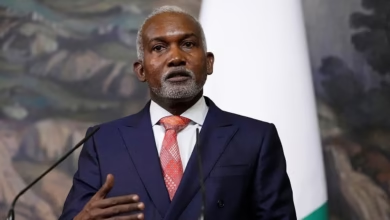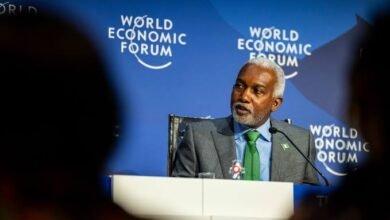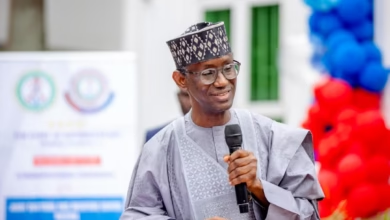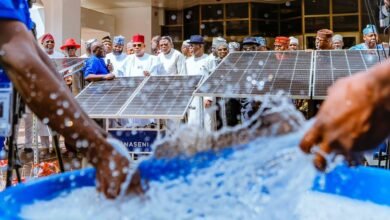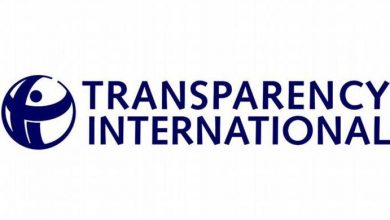Opinion
Imperatives of Nigeria’s National Development Plan: The Journey So Far
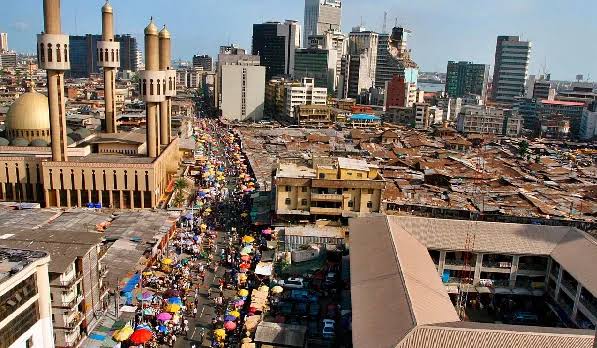
By Musa Ilallah
The origin of development planning in Nigeria can be traced to the colonial period, specifically 1946 when the 10-year plan for development was launched. Prior to that, two development plans had been launched in 1929 and 1940 for all the British colonies across the globe.
Core objectives of a development plan for a developing country like Nigeria include Increase in per capita income; even distribution of income; reduction in the level of unemployment; increasing the supply of high level manpower, diversification of the economy; balanced development and indigenization of economic activities.
Since then, bridging the infrastructure gap to unleash economic growth and wealth creation,; optimising sources of economic growh to increase productivity and competitiveness; building a productive, competitive and functional human resource base for economic growth and social advancement towards developing a knowledge-based economy have been the concern of governments at various times.
It is on record that Nigeria has had a relatively long experience in the development planning, beginning with the Colonial Development Plan of 1958-68 during which Medium-term development plans and national rolling plans were developed and implemented with mixed results.
Regrettably, other major strategic initiatives such as the Structural Adjustment Programme, SAP; National Economic Empowerment and Development Strategy, NEEDS; Strategy for Attaining Millennium Development Goals, MDGs; and the 7-Point Agenda of the YarAdua government were not seen to have been effectively implemented.
General Sani Abacha government’s “Nigeria Vision 20:2020”, expressed the aspiration for Nigeria to become one of the top 20 economies in the world by 2020. It was envisaged that the attainment of the Vision would enable the country achieve a high standard of living for its citizens.
It was developed by Nigerians for the Nigerian people and involved a process of thorough engagement with all stakeholders across all levels of government and society.
The Vision was designed to be pursued through a series of three/four year plans which would further articulate strategies, policies, projects and programmes of Government.
The broad objectives of Vision 20:2020 were to make efficient use of human and natural resources to achieve rapid economic growth and translate the economic growth into equitable social development for all citizens.
In its determination to resurrect the country’s development plan, the Buhari administration took the bull by the horn by re-strategising, re invigorating and bringing life into the moribund National Development Plans through a brand new home-based initiative that will surely make the country’s infrastructure a force to be reckoned with in the World.
In the spirit of returning the country to the path of steady and sustainable development of the country’s infrastructure as envisaged by the initiators of having a workable development plan for the country that is threatened by a huge debt overhang, the federal government has intensified efforts to involve the private sector to bridge the estimated N350 trillion infrastructure gaps across the country.
Encapsulated as part of the five-year Medium-Term National Development Plan, MTNDP for 2021-2025, which is part of the innovative financing options, the PMB administration has put in place modalities to give the country’s infrastructure a face-lift.
Presently, Nigeria faces a critical infrastructure deficit projected at over $3 trillion in the next 26 years, with an average annual budget of approximately $29 billion in the last 10 years. Out of this figure only about 30 per cent was allocated to capital expenditure due to paucity of funds.
Nigeria’s Minister of State for Finance, Budget and National Planning, Clem I. Agba who disclosed the funding plan at a media briefing ahead of the 27th Nigerian Economic Summit holding this October in Abuja explained that
the proposed amount is the equivalent of 18 years national budget of the federal government based on the 2022 budget estimate of N16.4 trillion.
It is expected that if the private sector keys into the plan, companies would execute capital projects in various sectors and therefore help reduce the need of borrowings by the government to implement such projects.
Conversely, the companies would recoup their monies from the taxes they were supposed to pay the government over a certain period agreed by the two parties. Experts believe that when the arrangement works out well, Nigerians would be the ultimate beneficiaries because the construction of roads, bridges, railways, hospitals, dams and other social amenities would be faster.
It would be recalled that President Muhammadu Buhari requested the Senate to consider and approve an external borrowing plan amounting to about N2.5 trillion to fund projects captured under the 2018-2021 borrowing projections.
The plan provides that the private sector will contribute N300trn between 2021 and 2025, adding that States and the federal governments will contribute N50trn, with FG bringing N30trn, while States will contribute N20trn. The 2021 National Development Plan implementation will be co-chaired by the founder of Stanbic-IBTC Bank Plc and Anap Business Jets Limited, Atedo Peterside and the Minister of Finance, Zainab Ahmed.
In its efforts to place development of the country’s infrastructure where it rightly belongs, President Buhari, relying on the powers conferred on him by Section 23(2) of the Companies Income Tax, signed Executive Order No. 007 on “Road Infrastructure Development and Refurbishment Investment Tax Credit Scheme 2019”.
The scheme focuses on leveraging private sector funding for the construction and refurbishment of eligible road infrastructure projects across the length and breadth of the country.
A reknowned Professor of the capital market, Uche Uwalake described the move as “a good one”by government.
Another economist, Umar Shehu Sani, said the government did well by trying to explore the private sector window. “It is a good move because countries the world over are looking at the direction of wealthy private companies to bridge development gaps.”
However, the Lead Economist and Enterprise Partner at SPM Professionals, Mr Paul Alaje, said it was doubtful for the government to raise N350trn in five years on infrastructure adding “The amount is not feasible.”
A roll call of Companies that so far indicated interest in the tax credit scheme of the Nigerian government shows that a tax credit certificate worth N22.3 billion was awarded to Dangote to construct the Apapa-Oworonshoki-Ojota Road in Lagos and the Lokoja-Obajana-Kabba Road connecting Kogi and Kwara States.
MTN also got the 110km Enugu-Onitsha road in Anambra State in exchange for tax credits.
Also, Transcorp Group expressed interest in the Oyinbo-Izuoma-Mirinwayi-Oklama-Afam Road. Access Bank is to construct the Oniru axis of VI-Lekki Circular Road in Lagos State while GZI Industries got the Umueme Village Road, Abia State.
Similarly, Mainstreet Energy indicated interest to construct the Malando-Garin Baka-Ngwaski Road, while the BUA group went for the Bode-Saadu-Lafiagi Road as well Eyenkorin Road and bridge.
The Nigerian Liquefied Natural Gas, NLNG earmarked the Bodo-Bonny Bridges and Road and the Dangote Group went for the Obajana-Kabba Road.
Also reacting to the Government’s medium-term national Development Plan, MTNDP 2021-2025, the Buhari Media organisation, BMO said that Government’s decision to involve the private sector to bridge the estimated N350 trillion infrastructure gap across the country through a 5-year plan, is a welcome development worth celebrating.
BMO, in a statement signed by its Chairman Niyi Akinsiju and Secretary Cassidy Madueke, noted that after the fourth era of the 1981-1985 fixed medium-term development plan, this is the first time that the government is reverting to a development plan.
“Now we have a government in place that is thinking medium term to long term planning to ensure continuity and consolidation of projects and achievements”.
The group added that the development plan has been activated in the 2022 budget recently presented by President Muhammadu Buhari, which is a reflection of the 2021-2025 medium term plan.
All well meaning Nigerians should join BMO in urging the private sector and investors alike to be encouraged to take advantage of government policies put in place to make the country an enabling environment for them to invest and thrive.

